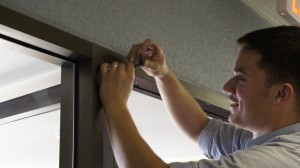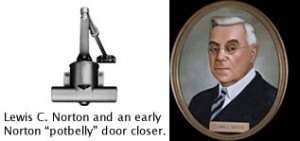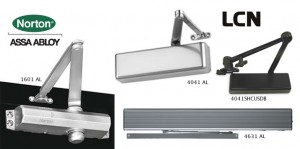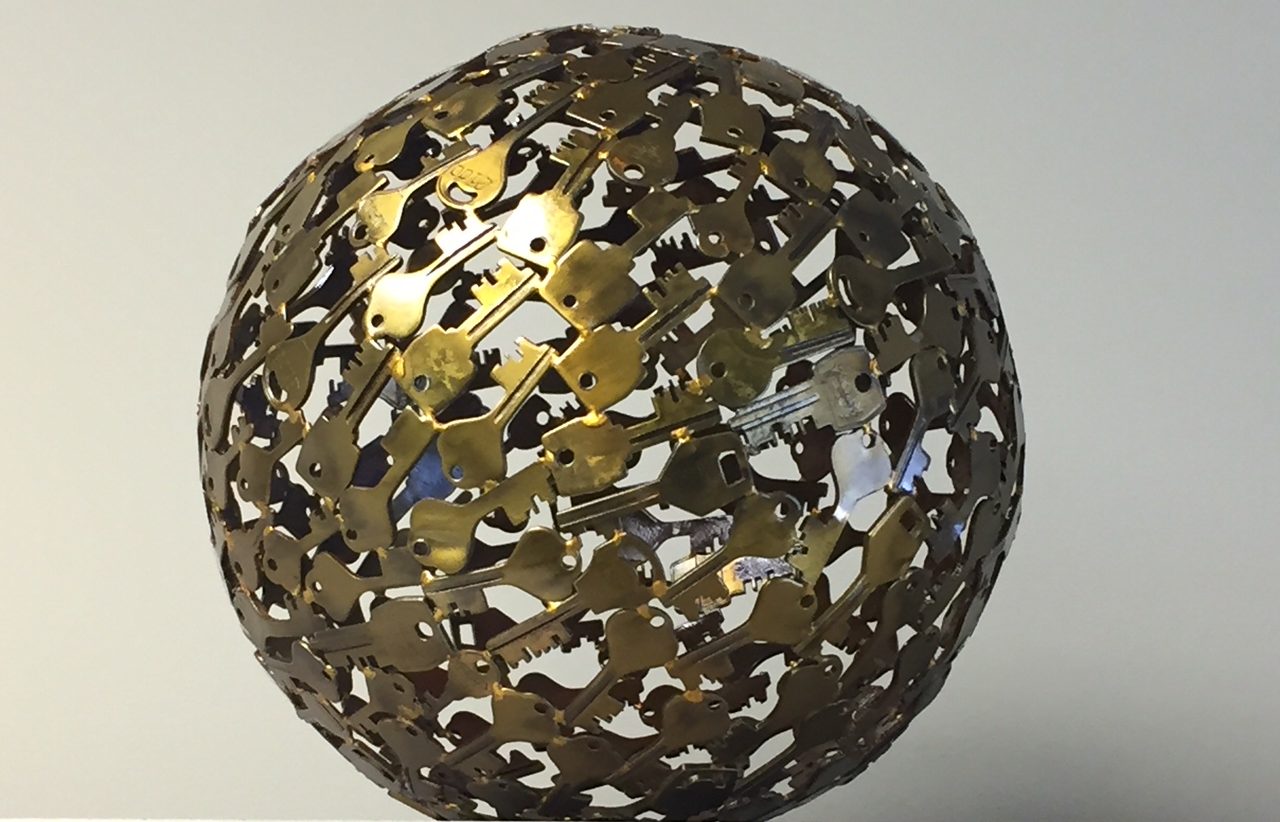
Pete Installs Door Closer
When banging and slamming noises, caused by several swinging doors that opened and closed with every gust of wind, interrupted worship services at the newly-built Trinity Episcopal Church in Boston, in 1877, the Rev. Phillips Brooks, (who is also remembered as the lyricist of “O, Little Town of Bethlehem”), told Lewis C. Norton to find a remedy, as quickly as possible!
Norton, the young carpenter / caretaker at the architecturally stunning church, installed rubber-lined wood stops on the head casing of the doors, but the thumping sound on the rubber stops continued to annoy the preacher.

Norton persevered. Eventually he solved the problem with a modified beer pump attached to the top of the door. His invention worked so well that he left the employ of the church and started the Norton Door Check Manufacturing Company, in 1881. The company was successful, but after several years, he left that company and moved West. In 1926, he put his initials on a new company, LCN, which incorporated new features he had invented for door closers.
Norton and LCN door closers still set the standards for design, durability, and door control. Wind conditions are just one of the determining factors when choosing which door closer model best fits your application. The location of the door, whether it is an exterior or interior door; the size of the door, (height, width and weight); and usage of the door. Heavy traffic requires a heavy-duty door closer. Fire doors have different requirements than non-fire doors. Hold-open options impact closer selection, as does the mounting location of the closer on the door.
 Since the passing of the Americans with Disabilities Act, LCN AutoEqualizers have played a great role in aiding those with disabilities. These power operators automatically open and close doors when actuated. Offering both a pneumatic and electric version, LCN has assisted building owners and architects with meeting their ADA requirements, as well as providing easy access for the frail, elderly or disabled. Manual closers are also available with reduced opening force to meet ADA requirements.
Since the passing of the Americans with Disabilities Act, LCN AutoEqualizers have played a great role in aiding those with disabilities. These power operators automatically open and close doors when actuated. Offering both a pneumatic and electric version, LCN has assisted building owners and architects with meeting their ADA requirements, as well as providing easy access for the frail, elderly or disabled. Manual closers are also available with reduced opening force to meet ADA requirements.



